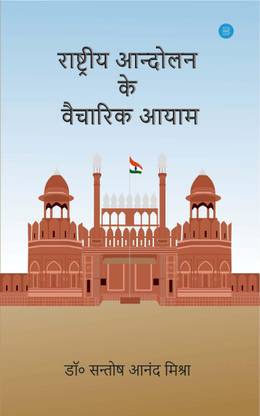Revolutionary Gopabandhu Choudhary (8 August 1893- 29 April 1958)
Introduction
Gopabandhu Choudhury's name is written in golden letters among the great warriors of the Indian freedom struggle. He was not only a freedom fighter but also a social worker, a follower of Gandhian ideology and a great son of Odisha. His life is a symbol of struggle, sacrifice and service. He left his government job and made service to the country his goal.
Early life and education
Gopabandhu Choudhary was born on 8 August 1893 in Satihati village of Cuttack district of Odisha. He belonged to a prestigious landlord family. His father's name was Gopinath Choudhary. He made remarkable progress in the field of education and graduated in science from Calcutta University. After this, he joined the civil service after taking a law degree from Patna University.
Government service and its renunciation
Gopabandhu Choudhary got the job of Deputy Magistrate under the British rule, which was a respectable and secure post at that time. But when the wave of freedom struggle arose in the country and the non-cooperation movement started under the leadership of Gandhiji, then Choudhary ji resigned from his job in 1921. This step reflects his patriotism and commitment to freedom.
Political contribution
After leaving the job, Gopabandhu Choudhary completely dedicated himself to the freedom struggle. He was highly influenced by Gandhiji's ideas. He actively participated in the Non-Cooperation Movement, Civil Disobedience Movement and Quit India Movement. He went to jail many times and suffered torture, but did not step back from serving the nation.
His special contribution was in strengthening the Congress organization in Odisha. He also became the President of the Odisha Pradesh Congress Committee and played a decisive role in connecting the people with the movements.
Social service and colony construction
Apart from the freedom struggle, Gopabandhu Choudhary was also a pioneer of social reform. He worked against evils like casteism, illiteracy and untouchability. In 1934, on Gandhiji's advice, he founded 'Seva Samaj', through which he started working for education, health and cleanliness in rural areas.
He tried to develop Ramchandrapur village in Cuttack district of Odisha as an ideal village. His aim was that the village should become self-reliant and a sense of social justice should develop there.
Life after independence
After independence, Gopabandhu Choudhary stayed away from power politics and made social service his path. He strengthened Gandhian institutions and inspired the youth to serve the village. He wore Khadi throughout his life and remained a promoter of Swadeshi.
Death and legacy
Gopabandhu Choudhary died on 29 April 1958. He was a true follower of Gandhism and a symbol of public service. Many schools, institutions and roads named after him in Odisha still testify to his contribution.
Conclusion
The life of Gopabandhu Choudhary is a perfect example of freedom struggle, sacrifice, and service. He worked selflessly for the society and the nation throughout his life. Today, when we are breathing in independent India, we should remember his contribution and take inspiration from him. He is one of those few revolutionaries who chose service, not power.













0 Comments
Thank you